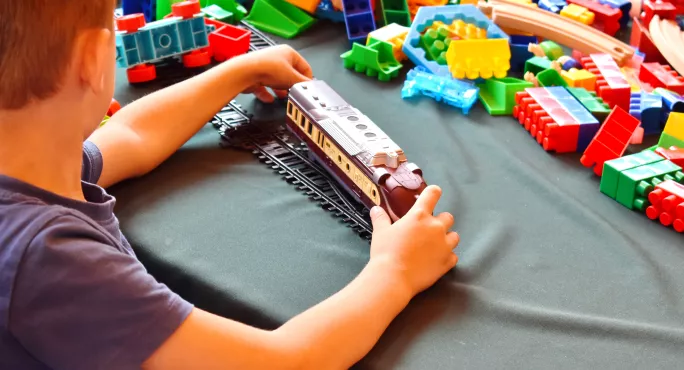Take a look around an EYFS classroom and you will (hopefully!) see children actively engaged in their learning, with amazing progress happening. Play will almost certainly be at the centre of what they are doing and it will be hugely effective.
Turn to children in key stage 1, and though they are still very young, we often treat them very differently to EYFS children. Things tend to be a lot more formal.
But if such great learning can take place through play in EYFS, then why can’t it the year after, in Year 1?
Play-based learning in KS1
The answer is: it can. And so many settings are embracing play and transforming the learning for KS1 children with amazing results this year.
We have done things this way for a while, so if you are just getting started, here is the benefit of our experience.
1. Get them trained
Amazing work doesn’t just happen. Children need to be taught how to access the provision (setting) and what your expectations are.
Adults need to be spending time in these areas of the classroom, modelling and extending children’s learning. WAGOLLs (“what a good one looks like”), targets and showcasing children’s work all help to set your expectations and ensure that children are producing outcomes of the highest standard.
The provision should be where your best learning is taking place, so you need to invest your time in it. If you think of it as secondary to your teaching, the learning that happens in these areas will not be of a high quality. So get stuck in there and watch your pupils thrive.
Read more:
2. Know your children
Your assessments are vital to tailor your provision. You cannot simply look at a pretty activity on Pinterest and replicate it if it is not what your children need. If you have a class with poor handwriting, for example, then a fine motor area is going to be essential. Get to know your children and their needs and then adapt your provision from there.
3. Setting up your classroom
The majority of KS1 classrooms are tiny in comparison with EYFS. Yes, this does mean that setting up provision is more challenging, but it can be done. You just have to be a little bit more creative.
Think carefully about which areas you will have and how you can get the most out of them. For example, a construction area can be invaluable in meeting the objectives of the DT curriculum and is a great area to get purposeful maths and writing happening. Add landmarks and maps to get some great geography and history learning in, which could also lead to some fantastic computing work to research the different places.
With careful planning and resourcing, so much learning can happen in one small area!
4. Know the national curriculum
There are some objectives that need to be explicitly taught. Take “time”, for example. You cannot expect to put some clocks out in the provision and for children to learn to tell the time. They need to be taught it. But then having clocks out in the provision after this teaching gives them ample opportunities to experiment and secure their learning. Much more beneficial than repeated time worksheets!
Knowing the national curriculum inside out is a must to ensure that you are covering the objectives and skills that need to be taught and identifying how you can utilise the provision to secure this learning.
5. Be ready to adapt and change it – a lot
From your timetable, to areas in your classroom, to evidencing work, there is a lot to think about and get set up. Realistically, you're not going to get it all right from the get-go. And that's fine! There's absolutely nothing wrong with trying something and it not working. An ongoing cycle of observation, assessment and then adapting the provision will mean it is constantly meeting your children’s needs.
But most importantly, have fun! Play-based learning gives you and your children so many more opportunities than formal learning does alone. Enjoy the journey.
Katie Jenkins is a key stage 1 lead and teacher





